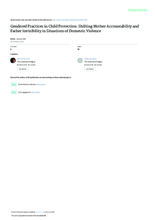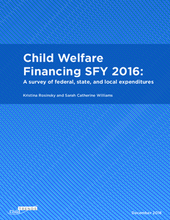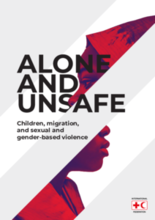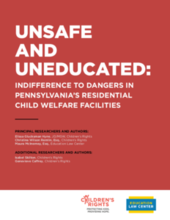This page contains documents and other resources related to children's care in the Americas. Browse resources by region, country, or category.
Displaying 721 - 730 of 1438
This article illuminates current child protection services (CPS) worker practices in situations of domestic violence in Alberta, Canada where inclusion and exclusion decisions are made for service provision, and the ways in which documents reflect these day-to-day practices.
Child Trends conducted this 10th national survey of U.S. child welfare agency expenditures to promote an understanding of the challenges and opportunities agencies face in serving vulnerable children. This report is part of an array of resources compiled from the survey’s findings.
This study seeks to improve understanding of the risks and types of sexual and gender-based violence faced by children who migrate on their own, as well as the unfortunate and widespread gaps in protection and assistance for these children.
This report is divided into two parts. Part A focuses on the dangers that occur at Pennsylvania’s residential facilities when the Pennsylvania Department of Human Services (“PA-DHS”) fails to provide meaningful oversight. Part B provides background on child residents’ educational rights, details the inferior education that children at these residential facilities receive, especially those children with disabilities, and the devastating consequences.
The aim of the study is to understand the perceptions of court‐involved adolescent girls in residential treatment (40% delinquency, 60% foster care/child abuse and neglect) on school climate and factors that affect their mood in school.
This study examines the effects of youth empowerment programs (YEPs) on the psychological empowerment of young people aging out of foster care.
This study explores how foster care experiences can impact support network functionality as young people exit the foster care system.
This study aims to test Independent Living Services (ILS)'s effects on educational attainment and employment of foster care youth.
This article provides an overview of complex trauma and its effects, with a focus on attachment concerns.
In this article, the author provides a synopsis of some current statistics about foster care and the experience of the foster care system in the US and offers an overview of a handful of relevant grief theories and expend a call to those within the field to develop more unique grief theories and interventions for children in the foster care system.





